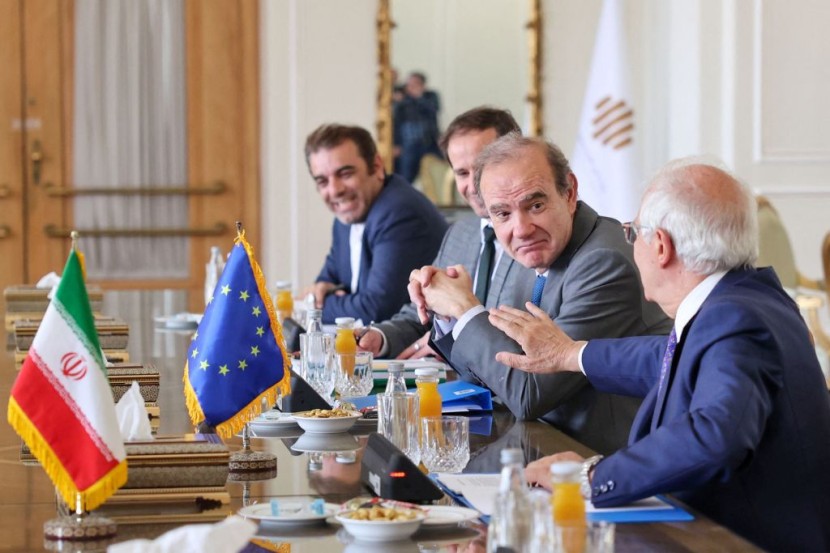
Iranian top nuclear negotiator, Ali Bagheri-Kani, met with European Union mediator Enrique Mora in Qatar as part of efforts to revive its 2015 nuclear accord with world powers, as Tehran and Washington attempt to defuse tensions through a mutual understanding that will help break the impasse.
Having failed to revive the agreement in indirect talks that have stalled since September, Iranian and Western officials have met repeatedly in recent weeks to outline steps that could slow Iran's rapidly advancing nuclear work, release some US and European detainees, and unfreeze some Iranian assets abroad.
Iran-EU Talks
Mora tweeted that the Doha discussions were intense and had addressed "a variety of challenging bilateral, regional, and international issues, including the way forward on the JCPOA," the official name for the nuclear agreement.
Peter Stano, a spokesperson for the EU, stated that the bloc was "maintaining diplomatic channels, including through this Doha meeting, to resolve all issues of concern with Iran."
Bagheri Kani announced a week ago that he had convened with his British, German, and French counterparts in the United Arab Emirates to discuss "a variety of issues and mutual concerns."
In exchange for the suspension of international sanctions against Tehran, the 2015 agreement restricted Iran's disputed uranium enrichment activity to make it more difficult for Tehran to acquire the means to produce nuclear weapons.
In 2018, however, former US President Donald Trump abandoned the agreement, deeming it too lenient on Iran, and reinstated sanctions that have devastated Iran's economy.
Tehran responded by progressively surpassing the pact's enrichment restrictions, reigniting US, European, and Israeli concerns that it may be pursuing an atomic weapon. According to CNN, the United States is also working toward the release of numerous Americans detained in Iran, which the administration has deemed a top priority.
Siamak Namazi, Emad Sharghi, and Morad Tahbaz are the three Americans incarcerated in Iran who have been identified as having been unlawfully detained. Shahab Dalili, an American resident, is also detained.
Sanctions Against Iran
In the past, the unfreezing of billions of dollars worth of seized Iranian assets in South Korea has been a component of a potential agreement for the detainees. Iran demanded that $7 billion in funds held in South Korean institutions due to US sanctions be released.
As a confidence-building measure, the United States approved a waiver allowing the transfer of $2.7 billion from Iraq to Iranian institutions. State Department spokesman Matthew Miller described the move as "consistent with transactions that have occurred over a number of years."
The spokesperson for Iran's foreign ministry stated last week that Tehran and the United States exchanged communications via Oman "a few weeks ago," but that his government does not support negotiations for an interim agreement or new arrangements to supplant the JCPOA.
Limiting Iran's uranium enrichment has been a key topic of discussion with Iranian officials. In three months, the country's enriched uranium stockpile has increased by more than a quarter, according to an IAEA report. Currently, Iran's official uranium enrichment is 60% pure. Above 90% enrichment is considered to be weapon-grade uranium.
Related Article : China, Germany Hold High-Level Meeting, Agree to Deeper Cooperation








